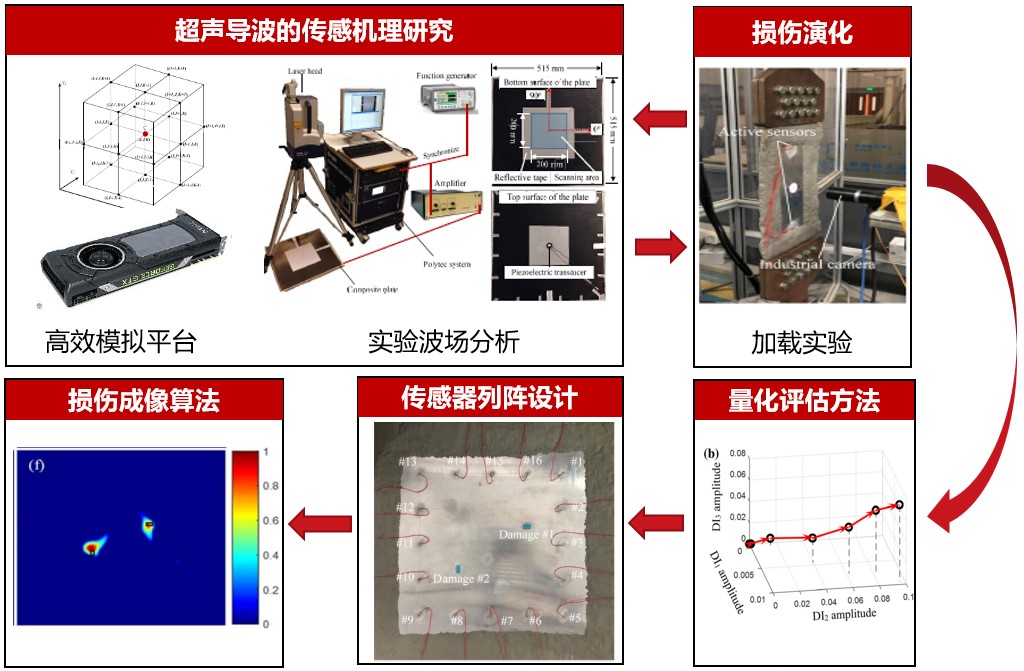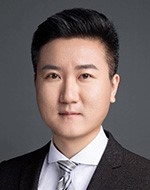The University of Michigan-Shanghai Jiao Tong University Joint Institute (UM-SJTU JI, JI hereafter) Associate Professor Yanfeng Shen has obtained support from Shanghai Rising-Star Program (Class A) , after his research project entitled “Investigation on the Mechanism of Ultrasonic Sensing for Incipient Damage in Complex Structures” was approved by the Science and Technology Commission of Shanghai Municipality (STCSM). Related research tasks will be carried out at Shanghai Key Laboratory for Digital Maintenance of Buildings and Infrastructure, according to a recent STCSM announcement.
Engineering structures are prone to material degradation, fatigue and corrosion due to cyclic loadings and hash service environments. If incipient structural damage situations are not found, they may cause catastrophic failures. There have been innumerable accidents in aerospace, mechanical, structural, and civil engineering, resulting in heavy loss of treasure and lives. Thus, it is of critical importance to achieve online nondestructive evaluation and real-time health monitoring of engineering infrastructures to enhance their safety and reliability. Structural health monitoring technology may push the barrier for reducing the maintenance cost, elongating the service lives of equipment and structures, as well as contributing boosting economic value to the industry.

The STCSM-approved JI research project strives to study the essential issues in guided wave based structural health monitoring. Via theoretical analysis, experimental investigations, modern observation techniques, and numerical modeling schemes, the project aims at unfolding the in-depth mechanism behind the structural sensing techniques for incipient damage detection in complex structures. Key research topics includes highly-efficient modeling method based on the Local Interaction Simulation Approach (LISA), linear and nonlinear interactions between ultrasonic guided waves and typical structural damage types, sensor array design and information fusion for damage location, quantification, imaging, and evolution estimation. The research is expected to provide theoretical foundation and technological methodology for the online monitoring of engineering infrastructures.
Shanghai Rising-Star Program is sponsored by STCSM for the purpose of enhancing the technology talent team, accelerating the growth of young scholars, and realizing the scientific development of the municipality. Targeting at selecting and nurturing outstanding young scholars who have potential to be scientific and technological leaders, the program provides funding to support young scholars taking the lead in scientific research, application development, and technology achievement transformations.
Biography

Dr. Yanfeng Shen is a tenure-track Associate Professor at the University of Michigan–Shanghai Jiao Tong University Joint Institute. He received his Bachelor’s degree in engineering mechanics from Wuhan University in 2010 and his Ph.D. degree in mechanical engineering from the University of South Carolina in 2014. Thereafter, he worked as a Postdoctoral Research Fellow in the Department of Aerospace Engineering at the University of Michigan. Dr. Shen started as a tenure-track Assistant Professor at the Joint Institute in 2016 and was promoted to Associate Professor in 2020. He is serving as an Executive Member for Equipment Structure Health Monitoring and Prognostics Society (CSHMP) of China. He is also a member of Nondestructive Diagnostics and Prognostics Division (NDPD) of American Society of Mechanical Engineers (ASME). In 2017, he received the best paper award for his research on nonlinear ultrasonics from the American Society of Mechanical Engineers (ASME) international mechanical engineering congress & exposition. In 2018, his research on efficient numerical modeling techniques was acknowledged with the best paper award from the 4th international conference on structural health monitoring and integrity management. In 2019, he was honored with the Youth Medal from Shanghai Government. Due to his outstanding contribution to the advancement of the field of structural health monitoring, he was awarded the Achenbach Medal from the international structural health monitoring community in 2020.





